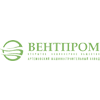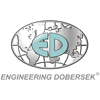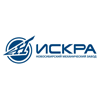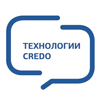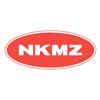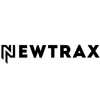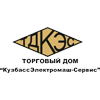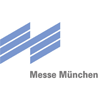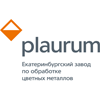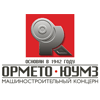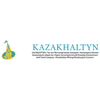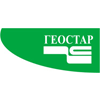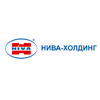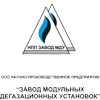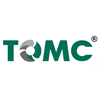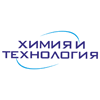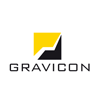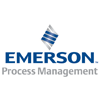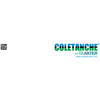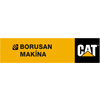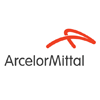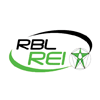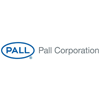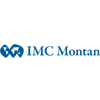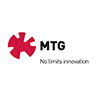Publication ethics
ISSN 2227-4766
Publishing Ethics of the Mining Journal of Kazakhstan. Scientific Publication Ethics
The Editorial Board of the Mining Journal of Kazakhstan adheres to the Principles of Publication Ethics adopted by the international community, and also considers the valuable experience of respected international journals and publishing houses.
In order to prevent unfair practices in publishing activities (plagiarism, misinformation statement, etc.), and to ensure top-quality scientific publications, public recognition of scientific results obtained by any author, each member of the Editorial Board, author, reviewer, publisher and the institutions participating in publishing process must comply with ethical standards, norms and rules and must make reasonable efforts to prevent violations. The compliance with the Code of Scientific Publication Ethics by all participants in this process ensures the author’s intellectual property rights, publication quality improvement and exclusion of any probable unlawful use of copyright materials in the interests of individuals.
Basic terms used in this Regulation:
Scientific Publication Ethics – a system of professional conduct standards in the relationship between authors, reviewers, editors, publishers and readers in the course of creating, distributing and using any scientific publications.
Author – the person or group of persons (corporate authors) participating in creating the publication of scientific findings.
Chief Editor – a person being at the head of Editorial Board and making final decisions on journal production and release.
Publisher – the legal or natural person, who issues scientific publication.
Scientific article – a completed and published author’s work.
Plagiarism – deliberate misappropriation of the authorship of any another person’s work of science or art, or any another person’s ideas or inventions. The plagiarism may be a violation of copyright and patent laws and as such may result in legal liability.
Editor – a representative of scientific journal or publishing house, who prepares materials for publication and maintains communication with authors and readers of scientific publications.
Editorial Board – the advisory body from a group of authoritative persons, which provide the Chief Editor with assistance in selection, preparation and evaluation of works for publication.
Reviewer – an expert, who acts on behalf of any scientific journal or publishing house and conducts scientific examination of copyright materials in order to determine the possibility of their publications.
Manuscript – an author’s work that is submitted for publication to the editorial staff, but is not published.
Reader – any person who has read the published materials.
Principles of Professional Ethics in the editor’s activities
The publisher in its activities shall be responsible for the copyright work publication, which entails the necessity to comply with the following fundamental principles and procedures:
- To facilitate the ethical obligation performance by the editorial board, editorial-and-publishing
team, editorial board, reviewers and authors in accordance with these requirements. - To provide support to the journal’s editorial staff in examination of any claims against ethical
implications of published material and to assist in interaction with other journals and/or editors, if this contributes to fulfillment of editors’ duties. - To ensure confidentiality of the publication received from authors and of any information prior to
its publication. - To recognize that the journal activities are noncommercial project and non-profit-making.
- To be always ready to publish any corrections, clarifications, denunciations and apologies, when necessary.
- To enable the editorial board to exclude any publications containing plagiarism and inaccurate
data.
The publishing house (editor) shall be entitled to reject any manuscript or to demand its follow-up revision from the author, in case if it is prepared in violation of the Rules adopted in this journal and agreed with the Publishing House.
If the article is adopted for publication, it shall be posted on an open source; copyrights are reserved by the authors.
The information about financial support to research shall be posted, if the author provides such information to the article.
When detecting any substantial, grammatical, stylistic and other errors, the editorial board undertakes to take all measures to eliminate them.
Any editorial proof-reading introduced into the article should be agreed with the author.
The journal issues must not be delayed.
The ethical principles, by which the scientific publication author should be guided
When submitting materials to any scientific journal, the authors (or group of authors) realize that they bear the initial responsibility for the novelty and reliability of scientific research results, which supposes compliance with the following principles:
- The article authors should provide reliable research results. Knowingly inaccurate or falsified statements are not applicable.
- Authors should ensure that the research results stated in the submitted manuscript are completely original. Any borrowed fragments or statements should be executed with obligatory indication of author and original source. Any excessive borrowings and plagiarism, including any unexecuted citations, paraphrasing or appropriation of rights to another’s research results are unethical and inapplicable. The presence of borrowing without reference will be considered by the editorial board as plagiarism.
- The author’s manuscript should state only true facts and information; sufficient information to verify and repeat experiments by other researchers; and the authors should not use information obtained privately without open written permission; and should prevent data fabrication and falsification. They should avoid publication duplications (author’s cover letter must specify that the paper is published for the first time). If any certain elements of the manuscript were previously published, the author must refer to the earlier work and must specify the differences between the new paper and the previous one.
- Authors should not submit to the journal any manuscript that has been submitted to another journal and is under consideration, as well as any article already published in another journal.
- It is necessary to recognize the contribution of all persons, who had influence on the course of research in one way or another; in particular, the article should contain references to the works, which were important in the research.
- Authors must comply with ethical standards when speaking with criticism or comments on any third party research.
- All persons, who have made a significant contribution to the research, should be specified as article co-authors. It is inadmissible to specify any persons, who did not participate in the research, among co-authors.
- Authors should respect the work of editorial board and reviewers and should eliminate the pointed deficiencies or should explain them justifiably.
- Authors should submit and prepare the manuscript according to the rules adopted in the journal.
- If the author detects any significant errors or inaccuracies in the article at the stage of its consideration or after its publication, it must immediately notify about it the editorial board of the journal.
- Authors should provide the editorial board or publisher with proof of correctness of the original article or should correct material errors, if the editorial board or publisher becomes aware of them from any third parties.
Ethical principles in the reviewer’s activities
The reviewer performs scientific investigation of copyright materials, whereby its actions must be impartial and must consist in compliance with the following principles:
- The manuscript received for reviewing should be considered as a confidential document that cannot be transferred for familiarization or discussion to any third parties, who are not authorized for this by the editorial board.
- Reviewers must be aware that the manuscripts delivered to them are the authors’ intellectual property and refer to the information not subject to disclosure. The confidentiality compromise will be possible, only if the reviewer declares unreliability or falsification of any materials presented in the article.
- The reviewer should draw the Chief Editor’s attention to the essential or partial similarity of the assessed manuscript to any other work, and also to the facts of absence of references to any provisions, conclusions or arguments previously published in other works of this or other authors.
- The reviewer should mention the respective published works not cited (in the article).
- The reviewer must make the objective and reasoned assessment of stated research results and the fairly reasonable recommendations. No personal criticism of the author is applicable.
- Any comments and suggestions of the reviewer should be objective and principled, and should be aimed at improving the manuscript scientific level.
- The reviewer should make decisions based on specific facts and should provide evidence of its decision.
- Reviewers are not allowed to make copies of manuscripts for their own needs.
- Reviewers are not entitled to take advantage of knowledge on the work content prior to work publication.
- Any reviewer who, in its opinion, does not have sufficient qualifications to assess the manuscript, or cannot be objective, for example, in case of conflict of interest with the author or organization, should inform the editor about it with a request to exclude it from the procedure for this manuscript reviewing;
The article review report is confidential. The full name of the Reviewer is known by the Journal Chief Editor. This information shall not be disclosed.
Principles of Professional Ethics in the Chief Editor’s activities
The Chief Editor in its activities shall be responsible for publication of copyrighted works, which imposes the necessity to comply with the following fundamental principles:
- When making decision on publication, the Chief Editor of scientific journal shall be guided by the data reliability and the scientific significance of the concerned work.
- The Chief Editor should assess the intellectual content of manuscripts irrespective of author’s race, gender, sexual orientation, religious beliefs, origin, citizenship, social status or political preferences.
- Any unpublished data obtained from the submitted manuscripts should not be used for personal purposes or be transferred to any third parties without the written author’s consent. Information or ideas obtained during editing and associated with any possible benefits should be kept confidential and not be used for personal benefit.
- The Chief Editor should not allow publishing the information in case of sufficient grounds to believe that it is plagiarism.
The Chief Editor in its activities undertakes to:
– improve the journal constantly;
– adhere to the principle for freedom of expression;
– aspire to satisfy the requirements of journal’s readers and authors;
– exclude the influence of business or policy interests on the decision on material publication;
– make a decision on material publication being guided by the following main criteria: manuscript compliance with the journal subject-matter; timeliness, novelty and scientific significance of the presented article; clarity of presentation; result reliability and conclusion completeness. The research quality and timeliness are the basis for decision on publication;
– take all reasonable measures to ensure the high quality of published materials and the protection of personal information confidentiality;
– consider the reviewers recommendations when making the final decision on article publication. The responsibility for making decision on publication lies entirely with the journal’s editorial board;
– justify its decision in case of article adoption or rejection;
– enable the author of reviewed material to substantiate its research position;
– when changing the editorial board members, it undertakes not to cancel the decision on material publication made by the previous members.
The Chief Editor together with the Publisher should not leave unanswered any claims regarding the reviewed manuscripts or published materials, and when revealing any conflict situation they shall take all necessary measures to restore violated rights.
Article Publication Guidelines
Compliance with publishing ethics by the editorial board.
Compliance with the Guidelines for article declining.
Maintaining the academic writing integrity.
Preventing impairment of intellectual and ethical standards in case of commercial interests.
Willingness to post corrections, clarifications, deviations and apologies if appropriate.
Preventing the publication of plagiarism and fraudulent data.
Conflict of interests
In order to prevent any cases of publication ethics violation, it is necessary to exclude the conflict of interests of all parties involved in the manuscript publication procedure. The conflict of interest arises when any author, reviewer, or editorial board member have financial, scientific or personal relationship, which would affect their actions. Such relationships are called dual commitments, competing interests or competing loyalties.
In order to prevent the conflict of interests, and in accordance with the adopted ethical standards of journal, each of the parties has the following responsibilities.
The Editor is obliged to:
– submit the manuscript to another member of editorial board for consideration if the originally appointed reviewer has the conflict of interest with the author of submitted manuscript;
– request the information on possible competing interests from all participants in the manuscript publication procedure;
– make a decision on publication of the information, which is specified in the author’s letter and concerns the conflict of scientific and / or financial interests, if it is not confidential and may affect the published work assessment by the reader or scientific community;
– ensure amendments publication, if the information on conflict of interest was received after article publication.
The Author is obliged to:
– specify its place of employment and the source of research financing.
The Reviewer is obliged to:
– inform the Chief Editor about the presence of conflict of interest (dual commitments, competing interests) and to refuse to review the manuscript.
Violations
In case of any situation related to publication ethics violation by the editor, author or reviewer, the compulsory investigation will be required. This applies to published and unpublished materials. The editorial board is obliged to demand clarification, without involving any persons, who may have the conflict of interest with one of the parties. In case of publication of any material containing significant inaccuracies, it must be immediately corrected in a form applicable to readers and indexing systems.





